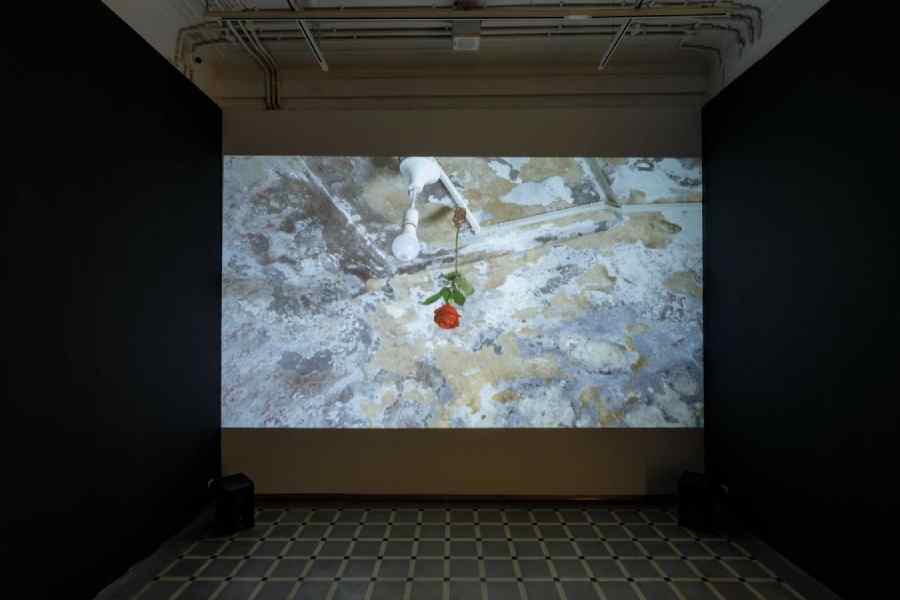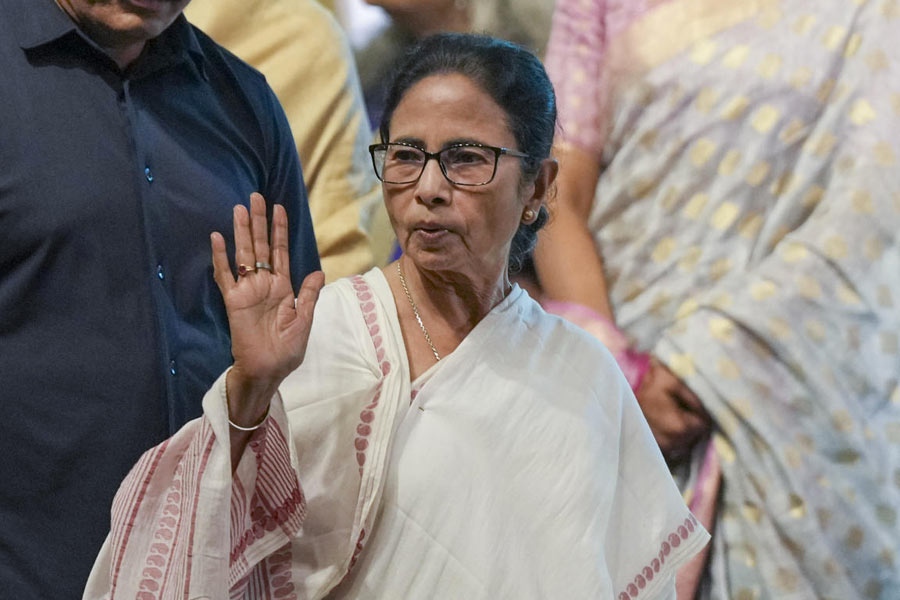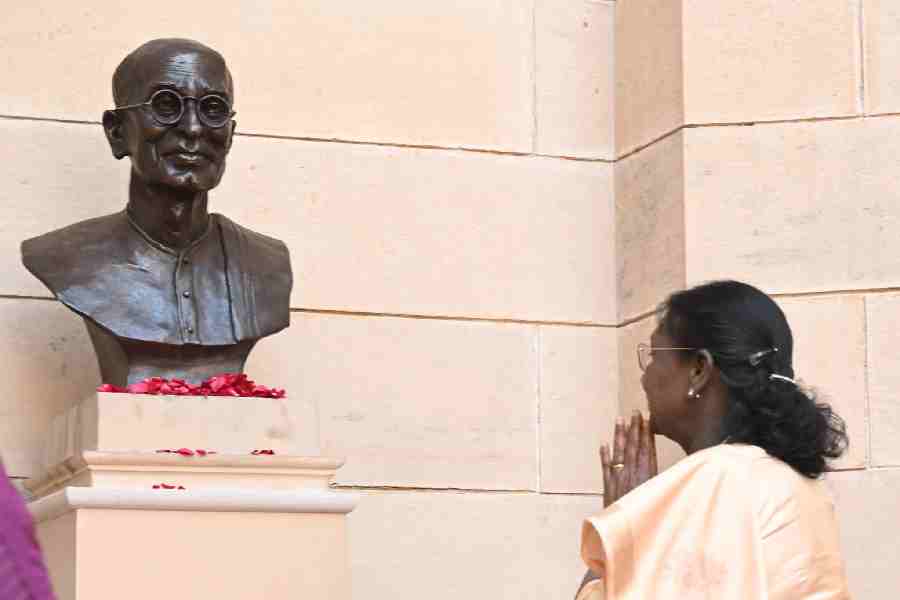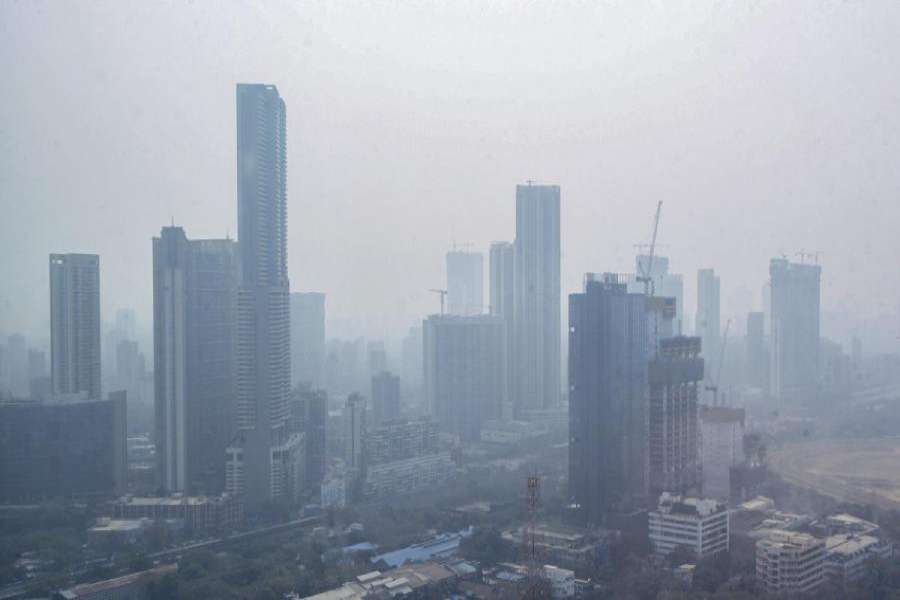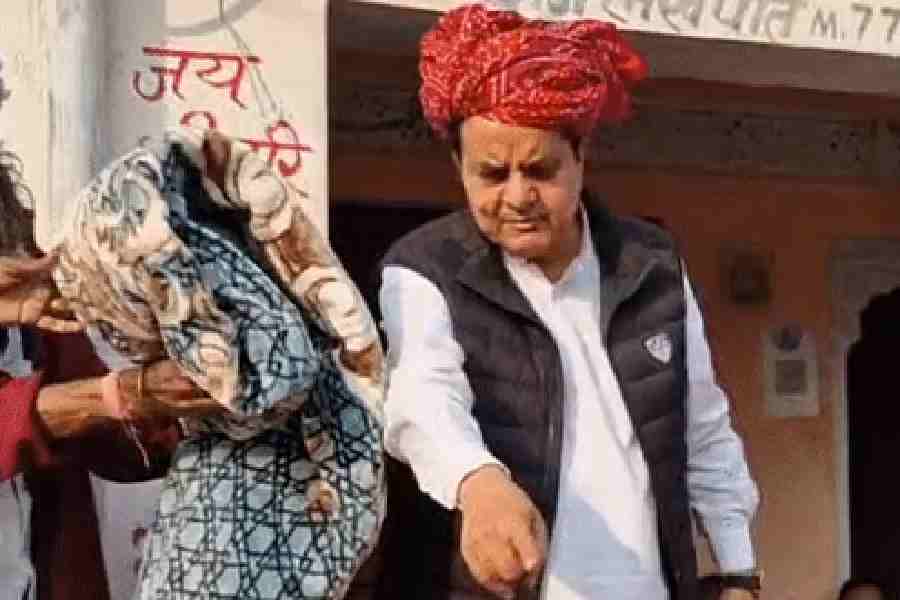Maya Angelou’s words, “But still, like air, I’ll rise,” have been a shining beacon of hope for the oppressed, reminding them that no matter how hard the times, better days will come. At the exhibition, Like Air, I’ll Rise, at Experimenter, Ballygunge Place, this refrain of hopefulness was the clear and ringing voice of Moushumi Bhowmik whose song, “Swapno dekhbo bole”, echoed through the rooms of the gallery, a constant accompaniment to the rest of the art.
The most heart-wrenching of the works was Emily Jacir’s letter to a friend (picture), a film essay on the conditions of life in Bethlehem under various Israeli violations. Shot before the war in Gaza, the gentle narration of the everyday violations of the lives of the people was more shocking than even the images that emerged from the battlefield. Jacinta Kerketta’s poem reflected on another kind of violation, not by a foreign people but by one’s own State. Bani Abidi’s Seeking comfort in a German chair — to be specific, chairs designed by famous German Bauhaus designers who have been
associated in varying degrees with the Nazi regime — reveals a discomfort
with majoritarian violence (even when it may be in vogue) that would be welcome across the world today. Padmini Chettur’s A Slightly Curving Place — A Study questions what it means to listen to the past and to its absence which remains.
Sakshi Gupta’s For beauty is nothing but the beginning of terror, that we are still able to bear is unnerving. Stoneware gunny sacks with animal hooves protruding from them are a scathing indictment of how little value we ascribe to the lives of others. Sabika Abbas Naqvi engages with language, exploring the power of words to shape, create and destroy identities. Films like Idi Katha Matramena and Molkarin by the Yugantar Film Collective narrate poignant tales of women’s oppression, their resilience and revolt. Bhasha Chakrabarti’s Scars of Labour is a series of gruesome battle scars ‘embroidered’ on the body, a reminder not just of past injustices but also that they were valiantly overcome.

